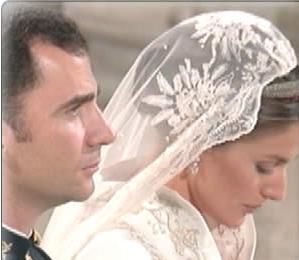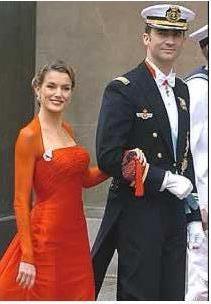Spanish Government plans to send troops to Haiti
According to an article in El Pais this morning, the Government is considering sending between 150 and 300 soldiers, helicopters, logistical support and a military hospital to join the Latin American peace forces deployed in Haiti (forces from Brasil, Chile, Argentina, Uruguay, Paraguay y Peru)as part of the UN Mission to stabilise the situation in this country. The Latin American countries involved in the peace mission have specified that they need specialised military supplies rather than more soldiers. President Lagos of Chile and President Lula of Brazil have both formally asked Jose Luis Rodriguez Zapatero to support the mission.
Haiti is the American continent's poorest country and until now US troops have tried without success to restore some sort of stability to a country caracterised by poverty, political instability and violence. Spanish involvement in the UN peace mission would serve to illustrate the Socialist Government's desire to strengthen ties with Latin American countries and to actively support United Nation resolutions and peace missions.
According to sources consulted by El Pais in Jose Bono's Defence Ministry, President Rodriguez Zapatero will make the final decision on whether or not to send troops after consulting Congress this week. One of the promises made by the Socialist Government is to always hold a debate in Congress, before committing Spanish troops to any potential military action abroad, so that all parties can express their opinion in contrast to the previous Government's refusal to debate decisions such as Spanish involvement in Iraq with opposition parties.
Meanwhile, Mariano Rajoy, leader of the PP party, has made public a proposal to triple the amount of time given to the leader of the opposition (himself) in the weekly debate held in Congress with the President of Spain (equivalent to Prime Minister's Question Time in Britain). During the Popular Party's eight years in power, Aznar and the Popular Party allowed Zapatero just 5 minutes to intervene with questions about government policies directed at the President during this weekly parliamentary session. Now in the opposition, the Popular Party wants to extend this time to 15 minutes. Rajoy said, not without sarcasm, during a political rally yesterday that in making this proposal he was giving Zapatero the chance to demostrate his desire for negotiation and consensus.
Unfortunately the European election campaign here looks set to be yet another Spanish campaign dominated by aggressive criticism and even insults aimed at other parties, rather than by constructive political debate centred on the different proposals made by different political forces. The Popular Party rally in Valladolid yesterday was an illustration of this. Rajoy spent most of his speech ridiculising the new Socialist Government to the delight of Popular Party supporters attending the rally.
Haiti is the American continent's poorest country and until now US troops have tried without success to restore some sort of stability to a country caracterised by poverty, political instability and violence. Spanish involvement in the UN peace mission would serve to illustrate the Socialist Government's desire to strengthen ties with Latin American countries and to actively support United Nation resolutions and peace missions.
According to sources consulted by El Pais in Jose Bono's Defence Ministry, President Rodriguez Zapatero will make the final decision on whether or not to send troops after consulting Congress this week. One of the promises made by the Socialist Government is to always hold a debate in Congress, before committing Spanish troops to any potential military action abroad, so that all parties can express their opinion in contrast to the previous Government's refusal to debate decisions such as Spanish involvement in Iraq with opposition parties.
Meanwhile, Mariano Rajoy, leader of the PP party, has made public a proposal to triple the amount of time given to the leader of the opposition (himself) in the weekly debate held in Congress with the President of Spain (equivalent to Prime Minister's Question Time in Britain). During the Popular Party's eight years in power, Aznar and the Popular Party allowed Zapatero just 5 minutes to intervene with questions about government policies directed at the President during this weekly parliamentary session. Now in the opposition, the Popular Party wants to extend this time to 15 minutes. Rajoy said, not without sarcasm, during a political rally yesterday that in making this proposal he was giving Zapatero the chance to demostrate his desire for negotiation and consensus.
Unfortunately the European election campaign here looks set to be yet another Spanish campaign dominated by aggressive criticism and even insults aimed at other parties, rather than by constructive political debate centred on the different proposals made by different political forces. The Popular Party rally in Valladolid yesterday was an illustration of this. Rajoy spent most of his speech ridiculising the new Socialist Government to the delight of Popular Party supporters attending the rally.









